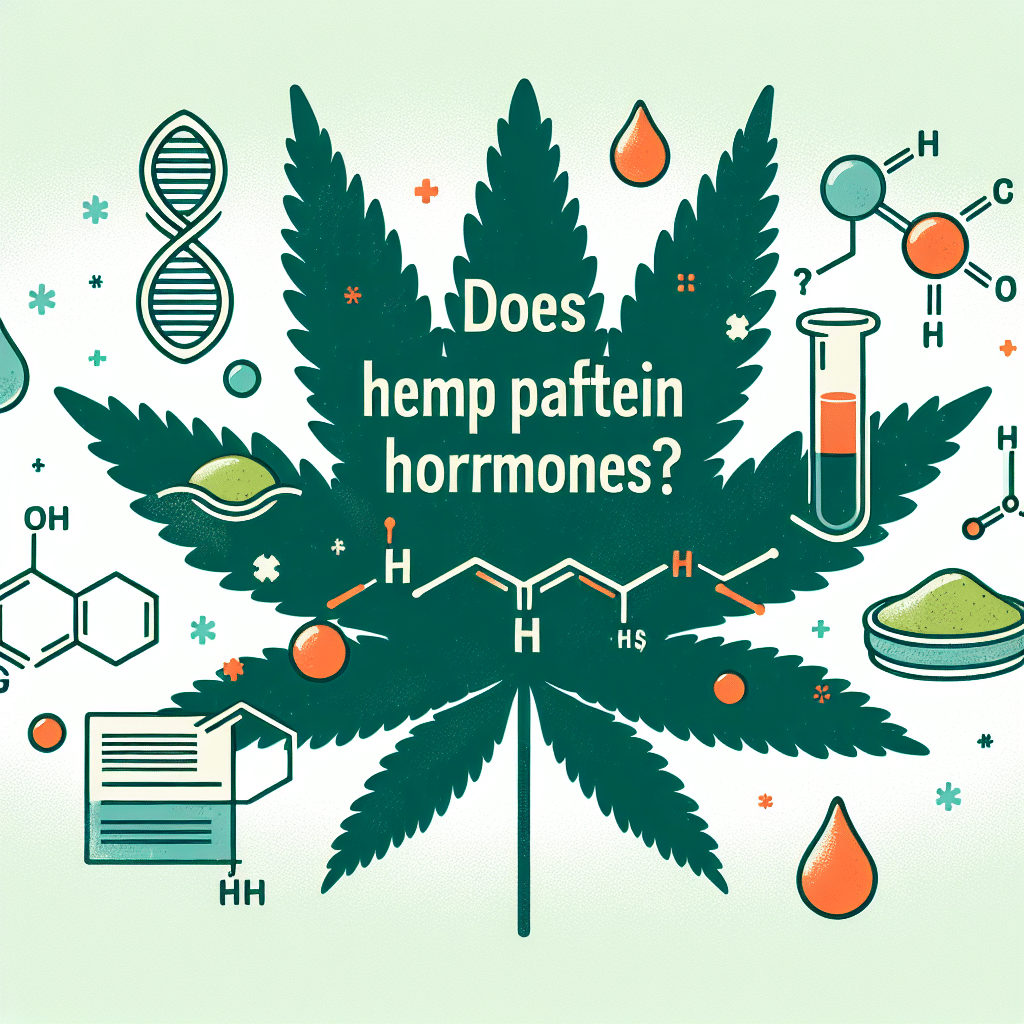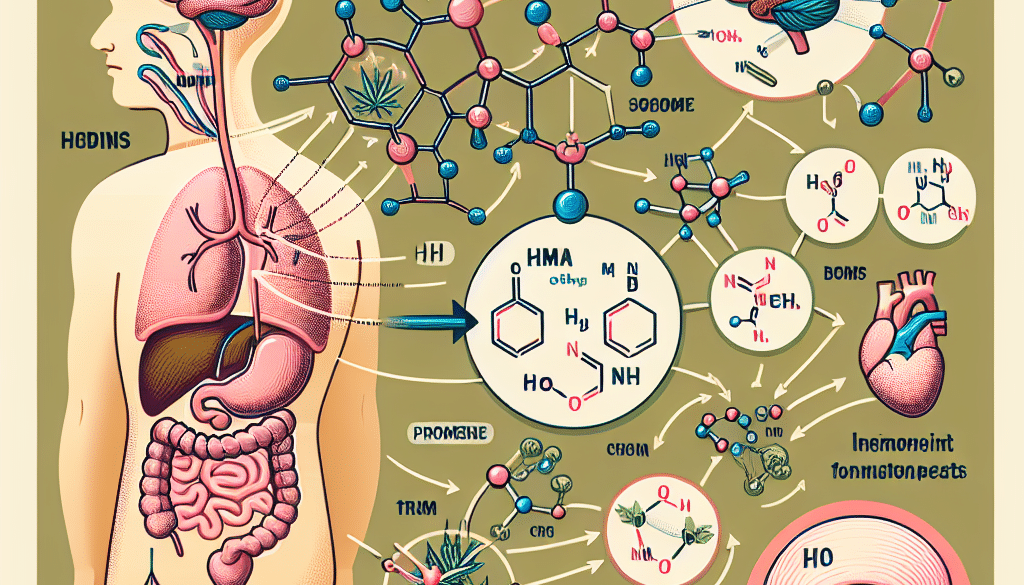Does Hemp Protein Affect Hormones?
-
Table of Contents
- Hemp Protein and Hormonal Balance: Unveiling the Connection
- Understanding Hemp Protein
- The Hormonal System: A Brief Overview
- Does Hemp Protein Affect Hormones?
- Phytoestrogens and Hemp
- Gamma-Linolenic Acid (GLA)
- Impact on Testosterone
- Insulin and Blood Sugar Regulation
- Case Studies and Anecdotal Evidence
- Statistics and Research Findings
- Conclusion: Weighing the Evidence
- Discover ETprotein’s Premium Hemp Protein Products
Hemp Protein and Hormonal Balance: Unveiling the Connection

As the wellness industry continues to grow, consumers are increasingly looking for plant-based alternatives to traditional animal-derived proteins. Hemp protein, derived from the seeds of the Cannabis sativa plant, has emerged as a popular choice due to its nutritional profile and perceived health benefits. However, with the rise in popularity comes the scrutiny of its effects on the body, particularly regarding hormonal balance. This article delves into the current research surrounding hemp protein and its potential impact on hormones.
Understanding Hemp Protein
Hemp protein is a complete protein source, meaning it contains all nine essential amino acids that the human body cannot produce on its own. It’s also rich in fiber, healthy fats, and minerals such as magnesium, calcium, iron, and potassium. Unlike other parts of the hemp plant, the seeds contain minimal to no tetrahydrocannabinol (THC), the psychoactive compound associated with marijuana.
The Hormonal System: A Brief Overview
The endocrine system is a network of glands that produce and release hormones, which regulate many of the body’s functions, including growth, metabolism, and reproduction. Hormones such as estrogen, testosterone, insulin, and cortisol play crucial roles in maintaining health and well-being.
Does Hemp Protein Affect Hormones?
Research into the effects of hemp protein on hormones is still in its infancy, but some studies suggest that certain components in hemp seeds may have an influence on hormonal balance. Here’s what the science says:
Phytoestrogens and Hemp
Hemp seeds contain compounds called phytoestrogens, which are plant-derived substances that can mimic the effects of estrogen in the body. The presence of these compounds has led to questions about their potential impact on hormone-sensitive conditions.
- Some studies suggest that phytoestrogens can bind to estrogen receptors, potentially influencing estrogen levels and related bodily functions.
- However, the phytoestrogen content in hemp is relatively low compared to other plant sources like soy or flaxseeds.
Gamma-Linolenic Acid (GLA)
Hemp seeds are a rich source of gamma-linolenic acid (GLA), an omega-6 fatty acid that has been studied for its potential hormonal effects.
- GLA is thought to help regulate the hormonal balance by supporting the production of prostaglandins, which are hormone-like substances that play a role in inflammation and immune response.
- Some research indicates that GLA supplementation may help alleviate symptoms associated with premenstrual syndrome (PMS) and menopause.
Impact on Testosterone
Concerns have been raised about hemp protein’s potential to affect testosterone levels due to its plant origin and the presence of phytoestrogens.
- Current research does not provide conclusive evidence that hemp protein significantly alters testosterone levels in humans.
- Animal studies have shown mixed results, with some indicating no effect on testosterone and others suggesting a potential to increase its production.
Insulin and Blood Sugar Regulation
The high fiber content in hemp protein may have a positive effect on insulin sensitivity and blood sugar levels.
- Fiber slows down the digestion of carbohydrates, which can help prevent spikes in blood sugar and insulin.
- This effect could be beneficial for individuals with insulin resistance or type 2 diabetes.
Case Studies and Anecdotal Evidence
While scientific research is limited, there are anecdotal reports and a few case studies that suggest hemp protein may have a beneficial impact on hormonal health.
- Some individuals report improved symptoms of hormonal imbalances, such as PMS or menopausal symptoms, after incorporating hemp protein into their diets.
- Case studies focusing on the use of GLA-rich supplements, including hemp oil, have shown potential benefits for conditions like eczema and rheumatoid arthritis, which may be influenced by hormonal factors.
Statistics and Research Findings
Quantitative data on the effects of hemp protein on hormones is scarce, but some studies provide insight into its potential benefits:
- A study published in the Journal of Agricultural and Food Chemistry found that hemp seed oil could potentially affect the levels of various hormones in animal models.
- Research in the Nutrition & Metabolism journal suggests that plant proteins, including hemp, may have a role in preventing obesity, metabolic syndrome, and type 2 diabetes, all of which are linked to hormonal imbalances.
Conclusion: Weighing the Evidence
In conclusion, while there is some evidence to suggest that hemp protein could influence hormonal balance, more research is needed to fully understand its effects. The current data indicates that hemp protein is a nutritious option that may offer benefits for hormonal health, particularly due to its content of GLA and fiber. However, individuals with hormone-sensitive conditions should consult with a healthcare provider before making significant changes to their diet.
Discover ETprotein’s Premium Hemp Protein Products
If you’re interested in exploring the benefits of hemp protein, ETprotein offers a range of high-quality protein products that could be a valuable addition to your diet. Their organic hemp protein is characterized by a neutral taste, non-GMO, and allergen-free attributes, making it an excellent choice for those seeking a plant-based protein source.
About ETprotein:
ETprotein, a reputable protein and L-(+)-Ergothioneine (EGT) Chinese factory manufacturer and supplier, is renowned for producing, stocking, exporting, and delivering the highest quality organic bulk vegan proteins and L-(+)-Ergothioneine. They include Organic rice protein, clear rice protein, pea protein, clear pea protein, watermelon seed protein, pumpkin seed protein, sunflower seed protein, mung bean protein, peanut protein, and L-(+)-Ergothioneine EGT Pharmaceutical grade, L-(+)-Ergothioneine EGT food grade, L-(+)-Ergothioneine EGT cosmetic grade, L-(+)-Ergothioneine EGT reference grade and L-(+)-Ergothioneine EGT standard. Their offerings, characterized by a neutral taste, non-GMO, allergen-free attributes, with L-(+)-Ergothioneine purity over 98%, 99%, cater to a diverse range of industries. They serve nutraceutical, pharmaceutical, cosmeceutical, veterinary, as well as food and beverage finished product distributors, traders, and manufacturers across Europe, USA, Canada, Australia, Thailand, Japan, Korea, Brazil, and Chile, among others.
ETprotein specialization includes exporting and delivering tailor-made protein powder and finished nutritional supplements. Their extensive product range covers sectors like Food and Beverage, Sports Nutrition, Weight Management, Dietary Supplements, Health and Wellness Products, and Infant Formula, ensuring comprehensive solutions to meet all your protein needs.
As a trusted company by leading global food and beverage brands and Fortune 500 companies, ETprotein reinforces China’s reputation in the global arena. For more information or to sample their products, please contact them and email sales(at)ETprotein.com today.














